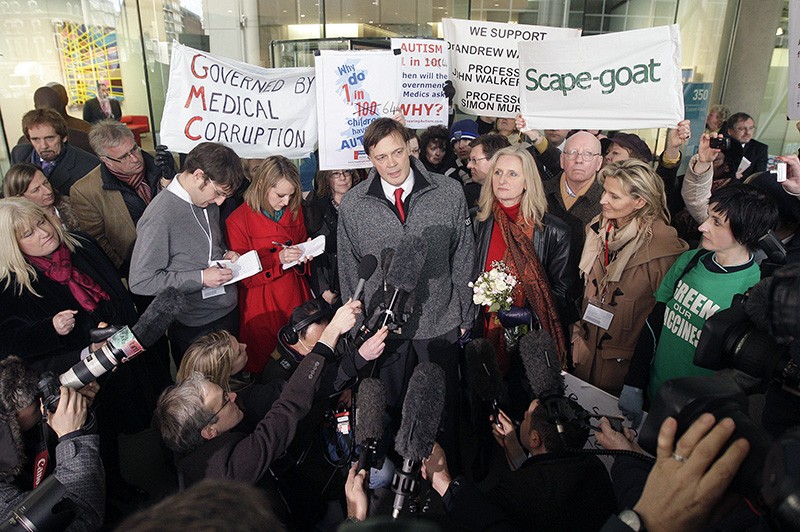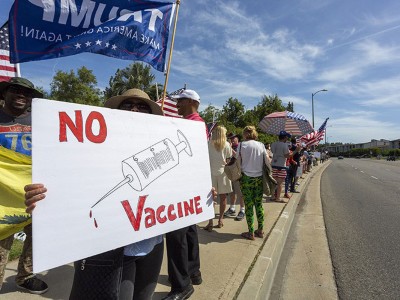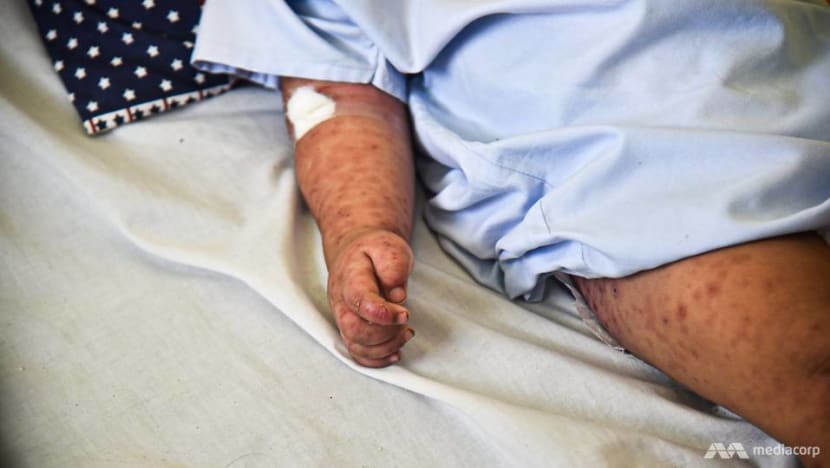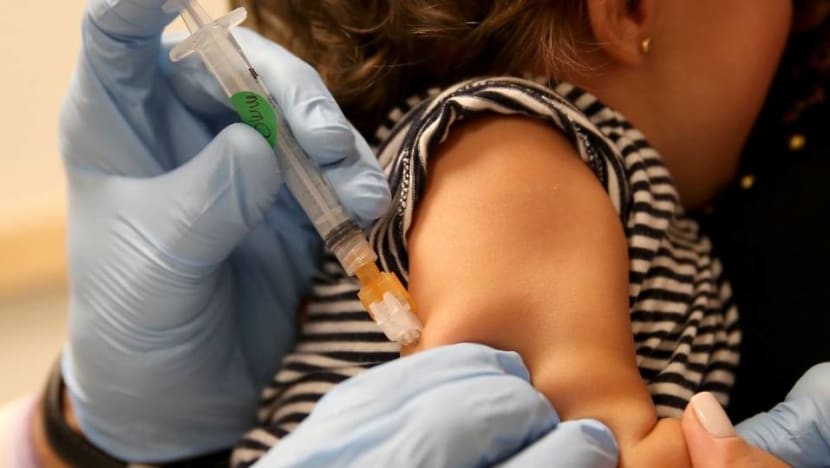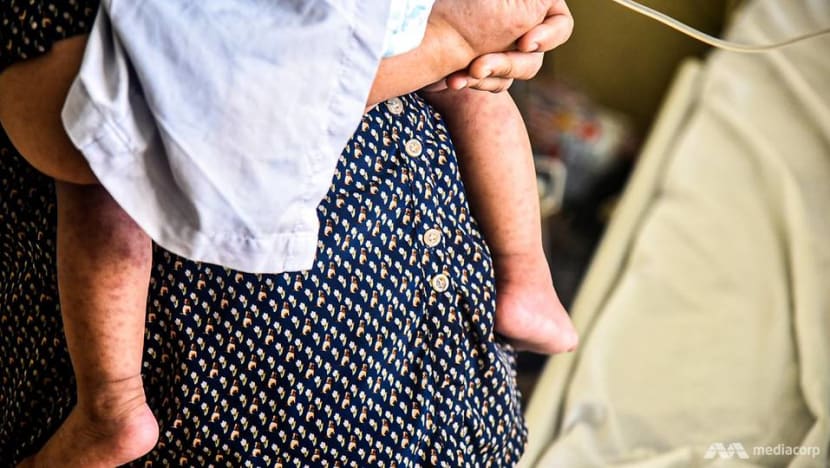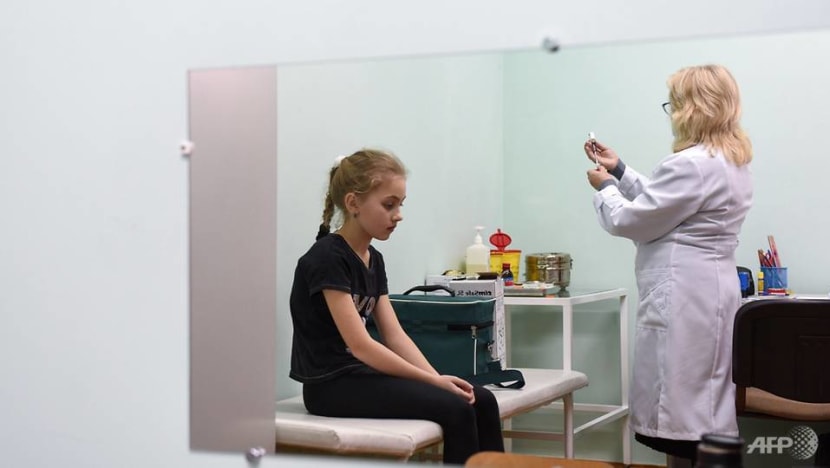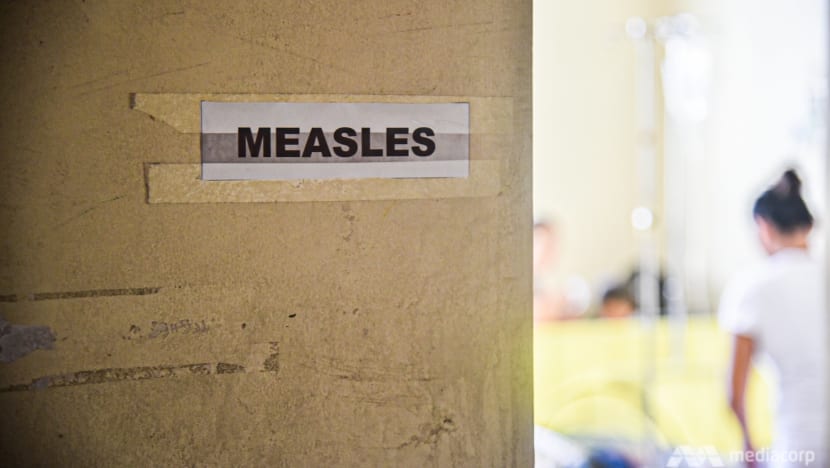@JHolmesJr I think you are anti-mRNA vaccine.
But the overall anti-vaccine movement was already around before covid. I can bet you the same people opposing measles vaccine are also opposing mRNA vaccine AND sinovac and what not.
https://www.todayonline.com/world/a...-vaccine-preventable-diseases-south-east-asia
'Anti-vax' movement fuels rise in measles, vaccine-preventable diseases in South-east Asia
Published
MARCH 28, 2019
Updated MARCH 28, 2019
14 SHARES
REUTERS
A girl receives anti-measles vaccination drops at a health centre in Tondo, Manila, on Sept 3, 2014.
Follow us on Instagram and join our Telegram channel for the latest updates.
HONG KONG — Vaccination rates for measles have dipped across South-east Asia, falling below the 95 per cent mark which experts say is needed to fully protect a community from the infectious disease.
At the same time, cases of measles have spiked in Indonesia, Malaysia and the Philippines in recent years — part of a worldwide 50 per cent increase seen last year, according to the World Health Organisation (WHO).
ADVERTISEMENT
For the past two years, the Philippines and Indonesia have had the world’s second- and third-highest rates of measles, behind India.
In the first two months of this year, 70 people died of measles in the Philippines. Cases skyrocketed to more than 20,000 last year — a 10-fold increase from 2017. In Indonesia, cases doubled from 2015 to a high of 11,300 in 2017, and 5,500 in 2018.
Measles symptoms include rashes and high fever. The disease mainly affects children and is highly infectious. According to the WHO, roughly 2.6 million people died annually from measles before the advent of mass vaccinations in the 1980s.
Anti-vaccine sentiment has been on the rise worldwide in the past two decades, particularly in the United States and in Europe — which saw 83,000 cases last year.
Read also
One more time, with big data: Measles vaccine doesn’t cause autism
A 1998 study — discredited but still cited in anti-vaccine communities online — linked the measles, mumps, and rubella (MMR) vaccine with autism, and coincided with growing public mistrust of medical experts and pharmaceutical companies.
Subscribe to our email newsletter
SUBSCRIBE
By clicking subscribe, I agree for my personal data to be used to send me TODAY newsletters, promotional offers and for research and analysis.
“If a family opts out of the measles vaccine, the unvaccinated can act as a razor wire for the virus,” said professor of pharmacology Tahir Khan at Monash University in Kuala Lumpur. “Then it can be transmitted even to vaccinated children during an active outbreak — increasing healthcare costs and the national disease burden.”
As elsewhere, anti-vaccine sentiment in South-east Asia stems from public mistrust in the safety and efficacy of vaccines. Government mismanagement has made matters worse, with cases of mislabelling and faulty vaccines being spread widely on social media.
Religious and ethical concerns within Muslim communities in Indonesia and Malaysia have also had an effect.
A massive drive by Indonesia to vaccinate 70 million children last year was derailed when the country’s influential Islamic Council issued a fatwa against the measles vaccine because it contained pig components.
Although the council clarified the vaccine could be used given no available alternatives, vaccination rates plummeted across South-east Asia’s most populous nation to an average of 65 per cent – and as low as 6 per cent in Sumatra’s Aceh province.
“This was the worst rate in vaccination programme history,” said professor of pharmacology Auliya Suwantika at Padjadjaran University in Bandung.
Low public confidence in vaccines caused measles vaccination rates in the Philippines to tumble to just 55 per cent last year, after a faulty dengue vaccine was distributed nationwide.
Read also
Explainer: Low vaccination rates, global outbreaks fuel US measles spread
The French-made drug Dengvaxia was given to hundreds of thousands of children before being recalled for raising the risk of contracting severe dengue fever and allegedly contributing to at least 10 deaths.
Malaysia also saw MMR vaccination rates decline to 89 per cent last year, according to Deputy Health Minister Lee Boon Chye. From a low of only 184 cases in 2013, Malaysia had 2,500 reported measles cases last year.
Malaysia’s Health Ministry is considering changing the law to make vaccination compulsory for all school children, as it is in neighbouring Singapore, where there were just 27 cases of measles last year.
“Personal understanding and family culture have important roles in vaccine refusal,” said Prof Khan, who has studied vaccination acceptability among Muslims in South-east Asia and the Middle East.
Prof Khan said anti-vaccine sentiment has spread on social media and been amplified by celebrities such as Suhaimi Saad, a popular nasheed singer in Malaysia who posts actively about the harm of vaccinations.
Episodes like the Philippines’ Dengvaxia scandal drive people to the Internet searching for information on vaccines, said epidemiologists Ruoran Li and Xiongfei Pan in a blog post for the London School of Hygiene & Tropical Medicine’s Vaccine Confidence Project.
“There they find an often confusing mix of information and misinformation, propaganda from both the pro-vaccine as well as anti-vaccine lobbies, and debates among those undecided,” the authors said.
Indonesia, the Philippines and Malaysia have some of the highest rates of social media usage, and vaccine-related incidents have fuelled public scepticism online.
Jakarta resident Angelin Rike Mahendra runs a blog chronicling the adverse side effects suffered by Indonesian children after vaccination. The mother of two often spotlights cases of children vaccinated against their parents’ wishes.
“Doctors often do not warn parents of adverse side effects from vaccinations, and this is not well-addressed by the Indonesian government,” said Ms Mahendra, who initially had her two sons vaccinated before deciding to protect their health naturally.
Malaysian banker-turned-entrepreneur David S R said: “Many people think anti-vaccine means we are anti-medicine, anti-doctor — but that isn’t true.” Mr David, who has not vaccinated his two children, prefers the term “vaccine-cautious” to the popular “anti-vaxxer”.
Many Muslim parents remain concerned about the origins of ingredients in widely distributed vaccines following the fatwa about non-halal measles vaccines.
The halal rules can often be misinterpreted, said Prof Khan, who emphasised that Islam allows for the consumption of anything in minimum quantities for the sake of treatment.
Indonesia’s health authorities require primary school children be vaccinated against tuberculosis, hepatitis B, polio, diphtheria-tetanus-pertussis and measles. Most children receive them from local health officials at school, but coverage is far from uniform.
According to the WHO, a child’s presence at school on vaccination day is interpreted as parental consent, but schools do not always notify parents in advance.
In Singapore, measles and diphtheria vaccines are required by law. Parents face fines up to S$1,000 per violation if they choose not to vaccinate their children.
Read also
Unvaccinated foreign travellers may be denied entry to Singapore under proposed changes to the law
Singaporean school children also receive influenza B and pneumococcal virus vaccines. Before health officials visit a school on vaccination day, pupils are sent home with consent forms.
Malaysia does not require children to be vaccinated to attend school, a position that is being reviewed by the Ministry of Health.
The issue has been a hot topic since Deputy Prime Minister Wan Azizah Wan Ismail, also a medical doctor, said that vaccines would not be required for children. “We are not forcing parents to give or complete vaccinations for their children now,” she said.
Ms Marianne Clark-Hattingh, chief of Unicef Malaysia, earlier this month spoke out against mandatory vaccinations, saying preventing children from accessing education if they are not vaccinated potentially penalises them for their parents’ choices.
Malaysia is also seeing a resurgence in vaccine-preventable diphtheria. Last month, a two-year-old child in southern Johor died from the illness.
One solution to increasing vaccine coverage could be making halal vaccines widely available, experts said. Earlier this month, Malaysia’s health ministry assured the public the country’s vaccines do not contain any non-halal elements, but halal-certified vaccines remain in the works.
“The government is the most powerful actor to impact this situation,” said Prof Khan. “We have to immunise a bigger cohort to minimise the chances of outbreak.” SOUTH CHINA MORNING POST
Read more at
https://www.todayonline.com/world/a...-vaccine-preventable-diseases-south-east-asia

